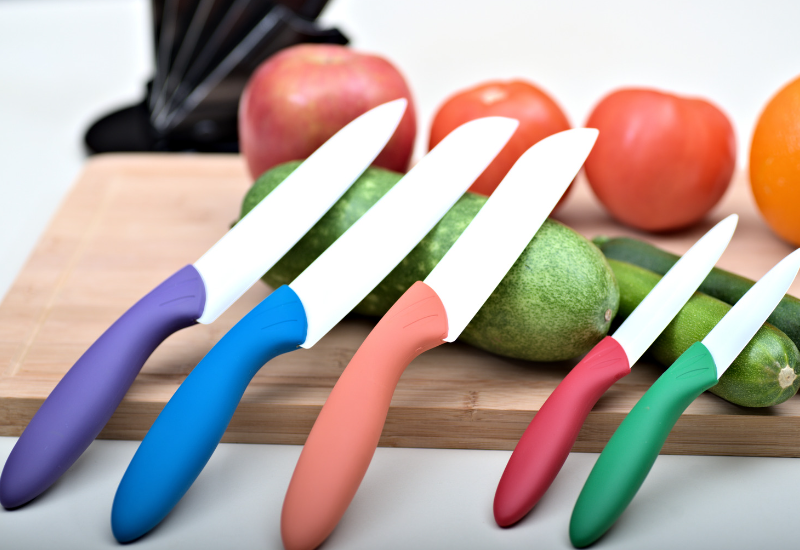Ceramic knives, widely used in contemporary kitchens around the globe, have been recognized for their distinct characteristics and unique performance attributes. However, like all materials, ceramic has its strengths and weaknesses. Here’s a closer look at the advantages and disadvantages of ceramic knives.
Pros of Ceramic Knives
Sharpness:
Ceramic blades are renowned for their incredible sharpness. They’re created by grounding ceramic powder into a blade mold under intense pressure and heat, resulting in a dense, hard blade that retains its sharpness significantly longer than most metal blades.
Lightweight:
Ceramic knives are exceptionally lightweight, which can reduce fatigue during long or complex cutting tasks. This attribute makes them a popular choice for individuals who require prolonged use of a knife.
Corrosion-resistant:
Ceramic is resistant to acid, rust, and corrosion. This resilience makes ceramic knives a safe and durable choice for preparing a wide array of foods, even those with high acidity levels that could tarnish or degrade other types of blades.
Hygienic:
The ceramic material is not porous, which means it doesn’t absorb food particles or odors. Moreover, it is resistant to bacteria, making these knives particularly hygienic.
Cons of Ceramic Knives
Fragility:
While ceramic blades are extremely hard, they are also brittle. This means that they can chip or even break if dropped, twisted, or used to cut hard substances. Therefore, they aren’t suitable for tasks like deboning, prying, or chopping through bone or frozen foods.
Limited Sharpening:
Due to their hardness, ceramic knives cannot be sharpened with traditional methods. They require a special diamond dust coated sharpening tool, making sharpening a more challenging task than with a steel knife.
Cost:
Ceramic knives can be more expensive than their steel counterparts, although the cost can vary widely depending on the quality and brand.
Lack of Flexibility:
Ceramic blades do not flex like metal blades, limiting their utility in tasks that require a bit of give, such as filleting fish.
In conclusion, ceramic knives can be a valuable addition to any kitchen, offering superior sharpness, lightweight handling, and resistance to corrosion and bacteria. However, their fragility, sharpening requirements, cost, and lack of flexibility may not make them the perfect choice for all users or all tasks. Carefully consider your cooking needs and style before investing in ceramic knives.
